- Home
- Margaret Pemberton
Zadruga
Zadruga Read online
Bello:
hidden talent rediscovered
Bello is a digital only imprint of Pan Macmillan, established to breathe life into previously published classic books.
At Bello we believe in the timeless power of the imagination, of good story, narrative and entertainment and we want to use digital technology to ensure that many more readers can enjoy these books into the future.
We publish in ebook and Print on Demand formats to bring these wonderful books to new audiences.
About Bello:
www.panmacmillan.com/bello
Sign up to our newsletter to hear about new releases events and competitions:
www.panmacmillan.com/bellonews
Contents
Margaret Pemberton
Dedication
May 1914–August 1919
Chapter One
Chapter Two
Chapter Three
Chapter Four
Chapter Five
Chapter Six
Chapter Seven
Chapter Eight
Chapter Nine
Chapter Ten
Chapter Eleven
Chapter Twelve
Chapter Thirteen
Chapter Fourteen
Chapter Fifteen
Chapter Sixteen
Chapter Seventeen
Chapter Eighteen
Chapter Nineteen
Chapter Twenty
May 1943 – June 1945
Chapter Twenty-One
Chapter Twenty-Two
Chapter Twenty-Three
Chapter Twenty-Four
Chapter Twenty-Five
Margaret Pemberton
Zadruga
Margaret Pemberton
Margaret Pemberton is the bestselling author of over thirty novels in many different genres, some of which are contemporary in setting and some historical.
She has served as Chairman of the Romantic Novelists’ Association and has three times served as a committee member of the Crime Writers’Association. Born in Bradford, she is married to a Londoner, has five children and two dogs and lives in Whitstable, Kent. Apart from writing, her passions are tango, travel, English history and the English countryside.
Dedication
For my son, Michael Carl.
With love.
May 1914–August 1919
Chapter One
Although the distance from the Vassilovich residence to the Royal Palace was a mere hundred yards and although Belgrade’s pleasant early summer heat was tempered by a cooling breeze, protocol dictated that the Vassilovich sisters travelled the distance in an open landau.
As the horses turned out into Prince Milan Street, Natalie Vassilovich wrinkled her pretty nose in distaste.
‘Why do we have to endure living on a street named after an Obrenovich? Why hasn’t it been renamed after King Alexander or King Peter, or even after Sandro?’
Katerina Vassilovich regarded her seventeen-year-old younger sister with amusement.
‘If Belgrade’s street names had changed every time an Obrenovich had replaced a Karageorgevich on the throne and every time a Karageorgevich had regained the throne from an Obrenovich, the population would be dizzy,’ she said, revealing a streak of common sense so prosaic Natalie found it almost unintelligible.
‘How can you be so dispassionate?’ she asked in disbelief. ‘You have just as much Karageorgevich blood in your veins as Uncle Peter or Sandro, and yet you behave as if you were all Vassilovich.’
‘I feel as if I am all Vassilovich,’ Katerina said, her grey-green eyes darkening slightly.
‘Well, I don’t!’ Natalie’s eyes, flecked gold where her sister’s were grey, flashed fire.
Katerina adjusted the mother-of-pearl handle of her parasol a little more comfortably against her shoulder, a slight frown creasing her brow. That Natalie had inherited their maternal great-grandfather’s legendary temper and passionate hotheadedness had been obvious ever since their nursery days. And she knew that their mother, as well as their father, heartily regretted it.
As the Vassilovich landau bowled past the Russian Legation and towards the palace gates she wondered why it was that the Karageorgevichs were so self-destructive; not her mother, of course. The Karegeorgevich temper and passion was as alien to her mother as it was to herself, but it had resulted in violent death for their great-grandfather and for innumerable cousins and uncles and great-uncles.
‘It is a great pity I am not to marry Sandro,’ Natalie said wistfully, dismissing the annoyance of the inappropriately named street and alighting on another, far more important grievance. ‘Why should it matter that we are cousins? Royalty has always intermarried and I would make a wonderful queen.’
At the thought of Sandro and Natalie’s unstable Karegeorgevich blood uniting in marriage Katerina shuddered, not remotely surprised that her sensible father had vetoed the idea the instant it had first been suggested.
‘Aunt Zorka would also have made a wonderful queen,’ she said divertingly as ceremonially dressed guards opened the high, wide gates and their landau rolled between them and into the palace park.
It was a moment or two before Natalie answered her. Zorka had died long before either she or Katerina had been born but their mother, who had acted as her companion during the years of Zorka’s marriage to their uncle, had brought them up on stories of her brooding Slavic beauty and of how she had passionately longed for the day when her husband would oust the Obrenoviches from the Serbian throne and retake the Karageorgevich crown. Fourteen years after her death he had finally done so; but he had not remarried. There was no Queen of Serbia and there would not be one until Sandro ascended the throne and made the girl he had yet to marry, queen.
‘Yes,’ Natalie said slowly, ‘but I doubt that Zorka would have been content being Queen of Serbia. She would have wanted to be queen of all the Slavs – Serbians, Montenegrins, Bosnians, Herzegovinians …’
Her face had taken on a rapt expression and Katerina stared at her, filled with a sudden sense of foreboding. Though Montenegro, like Serbia, was an independent kingdom and no longer part of the Ottoman Empire, Bosnia and Herzegovina enjoyed no such independence. Once Turkish possessions, they had been annexed by Austria-Hungary six years earlier, becoming part of the massive and unwieldy Habsburg empire. In Belgrade the cafés were full of young fanatics scheming of a way to liberate their fellow Slavs from the Habsburg yoke and Katerina had no desire to see her idealistic and impressionable young sister becoming one of their number.
‘For goodness sake, stop filling your head with impossible dreams,’ she said with uncharacteristic sharpness as the landau rocked to a halt. ‘And don’t start discussing Slav unity with Sandro. We’re here to talk about his visit to St Petersburg and which of the grand-duchesses it is Uncle Peter has arranged for him to marry, not to indulge in contentious street talk.’
Natalie didn’t trouble to reply. Katerina had been exercising her two-year seniority, trying to curb and restrain her, for as long as she could remember and she had long since ceased taking the slightest notice. As she stood up in the landau, smoothing the ankle-length skirt of her yellow-silk Parisian day-gown she marvelled yet again at how different Katerina was from herself in both looks and personality. Katerina took after their father’s family. All the Vassilovichs were tall and slender, the men possessing an air of nonchalant elegance the women serene and graceful, cool and calm whatever the crisis.
As she stepped from the landau Natalie pondered, not for the first time, on the mystery as to why all Vassilovich characteristics were so absent in her own physique and character. When she had said that she was all Karageorge she had been speaking the utter truth. Like all Karageorgevich women she was short, only a smidgeon over five foot two, with hair as ni
ght-black and curly as a gypsy’s and a nature recklessly passionate and impulsive.
It was her great-grandfather, George Petrovich, who had given her family the name by which it had been known for the last hundred years. A peasant farmer turned guerilla fighter he had been nicknamed Kara, meaning black. As Black George he had led the Serbian people in an uprising against their Turkish masters. Capturing Belgrade, putting the Turkish garrison to the sword and proclaiming himself Prince of Serbia, he temporarily ended the darkness of three and half centuries of Ottoman rule.
‘And his temper lost him it all,’ her father had said to her wearily when, as a small girl, she had questioned him about her mother’s family. ‘When there were no Turks to fight he fought with his supporters and when the Turks attempted to reoccupy Serbia, many Serbs gave their loyalty to another guerilla leader, Milos Obrenovich.’
‘And was that when great-grandfather was forced to leave Serbia?’ she had asked, her little hands clenching into fists at the thought of the wicked upstart, Milos Obrenovich.
‘Yes,’ her father had said gently, sliding his arm around her shoulders. ‘And what you must remember, Natalie, is that Milos Obrenovich would never have been able to style himself Prince of Serbia if your great-grandfather had been able to control his temper. Because he constantly failed to do so he lost his family the undisputed right to the Serbian throne.’
As an eight-year-old child she had been impressed, but not in the way her father had intended. In her eyes, great-grandfather Black George was a hero and it was his traitorous followers and the villainous Obrenovichs who were the cause of her family’s subsequent, intermittent exclusion from the Serbian throne.
As she stepped down from the landau in Katerina’s wake she wondered which of the four Russian grand-duchesses was to be her cousin’s bride and Serbia’s next queen. At eighteen, Olga was the eldest and the likeliest candidate. She looked up at the walls of the newly built palace, seeing it as the Tsar’s eldest daughter would see it, mortification flooding through her.
What on earth would Olga think of it? Known simply as the Konak it was new because the last Obrenovich king, together with his queen, had been savagely murdered in the old palace and in an attempt to obliterate the memory of their violent deaths it had been torn down. In its place had been built a palace that resembled not so much a royal residence as a stolid French provincial chateau. To Olga, accustomed to the gigantic Winter Palace in St Petersburg and the sumptuous splendour of the Romanov palaces in the Crimea and the Baltic, the Konak was going to appear devastatingly provincial.
‘I wish Uncle Peter would live a little more ceremoniously,’ she said exasperatedly as they stepped into the modestly-sized entrance vestibule. ‘One day he will not merely be King of Serbia but Tsar of all the Slavs and then he will have to live in great state and…’
‘I do wish you would get that particular bee out of your bonnet,’ Katerina said, her earlier flicker of anxiety deepening. ‘Can’t you think about the wedding instead? We shall both be bridesmaids and every crowned head in Europe will be in attendance.’
It was a heady thought, but so was the vision of a great Slav empire ruled over by a Karageorgevich. As a footman led them down a mirror-hung corridor towards the main drawing-room Natalie was both bewildered and irritated by Katerina’s lack of enthusiasm for what had always been the great Karageorgevich dream. She frowned slightly. It meant she couldn’t possibly confide in Katerina as she had intended. And she couldn’t confide in Sandro. Her new-found friends had been quite adamant about that.
Footmen opened the drawing-room’s double portiéres and a black and white spaniel bitch puppy tumbled out of the room and into the corridor, distracting her completely.
‘Oh, you darling!’ she cried, bending down and scooping her up in her arms, Slav unity and her exciting new friends temporarily forgotten. ‘Oh, just look at her, Katerina! Isn’t she adorable?’
Katerina’s anxiety faded. With the puppy in her arms Natalie looked little more than a child and her disquiet of the last ten minutes or so suddenly seemed ludicrous. It was perfectly natural that Natalie should echo popular sentiment and day-dream of the day when all Slavs, Catholic, Orthodox and Moslem, would live in unity no longer owing unwilling allegiance to the Habsburgs, and it had been crassly stupid of her to have imagined that Natalie had even heard of the Belgrade-based organization committed to bringing that end about by violent means.
Amused by her foolishness she walked across the sun-filled room to where her elderly uncle was standing with her father, and curtsied deeply.
Lean and slightly built, with grey hair rapidly turning to silver and a bristly handlebar moustache, Peter Karageorgevich was not a particularly kingly figure. Only his eyes revealed his ancestry. Dark and piercing, they were the eyes of Black George and they commanded instant respect.
‘You’ve come to hear all the St Petersburg gossip, have you, eh?’ he said to her affectionately.
Sandro was standing a little to his left, dressed in ceremonial army uniform and looking extremely pleased with himself. Further to the left was her mother, surrounded by a coterie of aunts and great-aunts and on the periphery of her vision she could see a throng of cousins and second-cousins and a small, élite group of foreign diplomats.
‘Yes, sir,’ she said, amused by her family’s unabashed impatience for the latest news on the long hoped-for marriage between Sandro and a Romanov.
Behind her she could hear Natalie regretfully lowering the puppy to the floor as she prepared to make her curtsey. She felt a stab of relief. Though Natalie complained bitterly about lack of ceremony in the Konak, it would have been quite typical of her to have attempted the curtsey, the puppy still in her arms.
‘The puppy was a present from the Tsaravich,’ Sandro said, reading her thoughts as she stepped away from his father and towards him. ‘She’s from the same litter as his own spaniel, Joy.’
The puppy tumbled over Katerina’s neatly shod feet and then lay on her back, waiting to be tickled. Sandro obliged with the toe of a glossily booted foot.
Impatience was foreign to Katerina’s nature but she felt a twinge of it as she waited for her cousin to return his attention to her and to indicate whether or not one of the Tsar’s daughters was to be his bride.
‘How was St Petersburg?’ she prompted meaningfully.
He removed his attention from the puppy. ‘As grandiose as ever,’ he said, grinning.
Katerina refused to be provoked. Although Sandro’s demeanour was usually serious, as befitted the heir to the throne, he was never solemn when Natalie was in the vicinity. Despite the difference in their ages they were very close. So close that, if it hadn’t been for the blood-tie between them and the political necessity of Sandro marrying into a strong royal house such as the Romanovs, their marrying would have surprised no-one.
They would certainly have made a handsome couple. Sandro was not particularly tall but he was pleasingly built. He had good shoulders which showed to advantage in uniform and despite his short-sightedness, which necessitated his wearing gold framed pince-nez, he moved with athletic strength and confidence. His black-lashed eyes were almost as dark as his father’s and when he smiled the lines running from nose to mouth deepened attractively. Like his father he sported a moustache, but whereas his father’s moustache was steely-grey and flamboyantly waxed and curled, Sandro’s moustache was trim and neat and glossily black.
His eyes held hers teasingly. ‘As for the gossip, Helene has adapted wonderfully to Russia and the baby is thriving.’
Hélène was his sister. Two years ago she had married the son of the Russian Grand-Duke Constantine and the official reason for Sandro’s visit to St Petersburg had been his attendance at the christening of Hélène’s first-born son in the Cathedral of Our Lady of Kazan.
Katerina smiled serenely, knowing she was being baited and refusing to rise to it. Afternoon tea at the Konak was a weekly social event at which all female members of the Karageorgevich cl
an were welcome. Her aunts and great-aunts did not, however, usually turn out in such numbers and they had certainly not done so in order to hear news of Hélène and her baby. If Sandro was being annoyingly unforthcoming about what had taken place in St Petersburg it was because he didn’t want to pre-empt the announcement that was about to be made.
She looked across to the small group of foreign diplomats and her certainty grew. It was highly unusual for anyone other than the Prime Minister to be in attendance at a family afternoon tea-party and she recognized representatives from both the French and British Legations.
The young Englishman exchanging words with his French counterpart, sensing her eyes on him, turned his head slightly. As their eyes met in friendly recognition he quirked an eyebrow. Katerina circumspectly made no response but as she allowed her glance to travel further around the vast room, her smile deepened. She knew very well what Julian Fielding was silently asking. He was wanting to know whether her uncle and Sandro had pulled off the coup of the decade and secured a marital alliance with the mighty Romanovs.
Natalie was now chattering to Sandro, the puppy once more in her arms and Katerina moved away and towards the cluster of female relations grouped around her mother.
‘… and apparently the Empress allows Rasputin into her presence at all hours of the day and relies on his advice utterly,’ her Great-Aunt Eudocia was saying in tones of shocked disapproval.
‘Then let us hope Sandro found favour with him,’ her Great-Aunt Elena responded with acerbity. ‘I’d hate us to lose the Romanov alliance because of a monk who apparently never washes.’
Eudocia sucked in her breath, her ample bosoms rising until her many necklaces were almost horizontal. ‘Don’t be ridiculous, Elena! Of course I wasn’t inferring that Rasputin would have a say in anything as important as a royal marriage! I was simply informing you of the Empress’s extraordinary behaviour where he is concerned. It is the talk not only of the court, but of the entire country…’

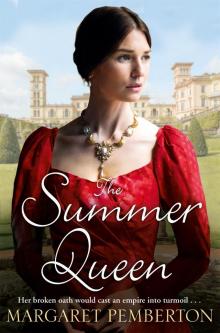 The Summer Queen
The Summer Queen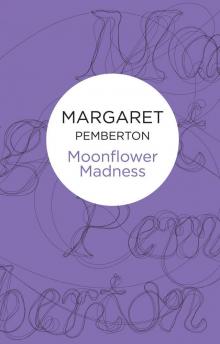 Moonflower Madness
Moonflower Madness The Londoners
The Londoners The Flower Garden
The Flower Garden Yorkshire Rose
Yorkshire Rose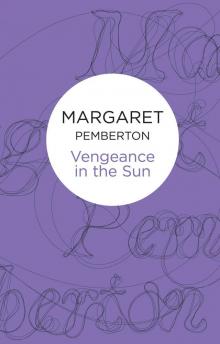 Vengeance in the Sun
Vengeance in the Sun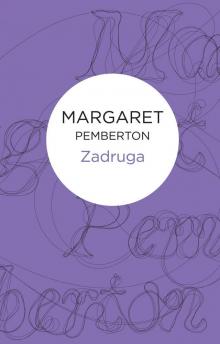 Zadruga
Zadruga Beneath the Cypress Tree
Beneath the Cypress Tree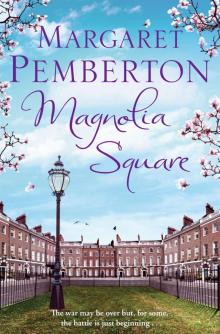 Magnolia Square
Magnolia Square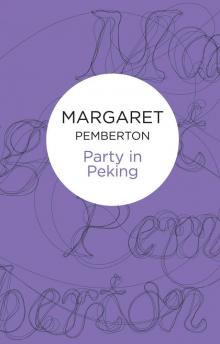 Party in Peking
Party in Peking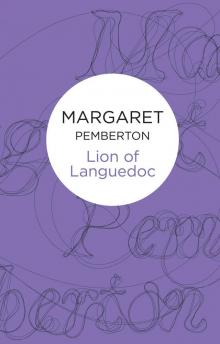 Lion of Languedoc
Lion of Languedoc Forget-Me-Not Bride
Forget-Me-Not Bride The Guilty Secret
The Guilty Secret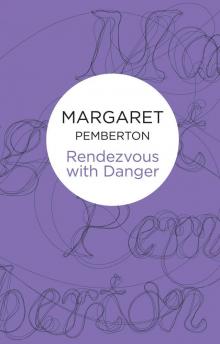 Rendezvous With Danger
Rendezvous With Danger A Season of Secrets
A Season of Secrets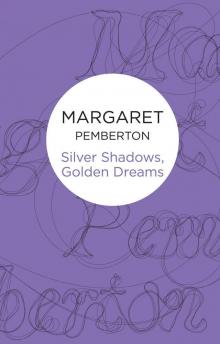 Silver Shadows, Golden Dreams
Silver Shadows, Golden Dreams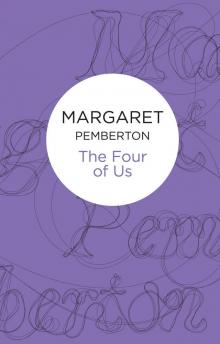 The Four of Us
The Four of Us Devil's Palace
Devil's Palace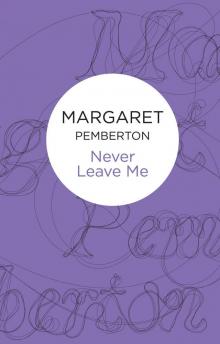 Never Leave Me
Never Leave Me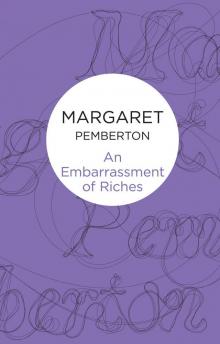 An Embarrassment of Riches
An Embarrassment of Riches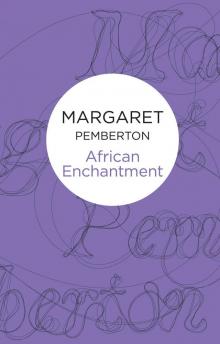 African Enchantment
African Enchantment White Christmas in Saigon
White Christmas in Saigon Coronation Summer
Coronation Summer A Multitude of Sins
A Multitude of Sins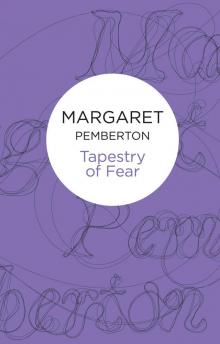 Tapestry of Fear
Tapestry of Fear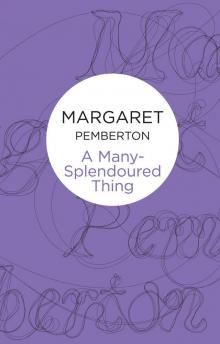 A Many-Splendoured Thing
A Many-Splendoured Thing